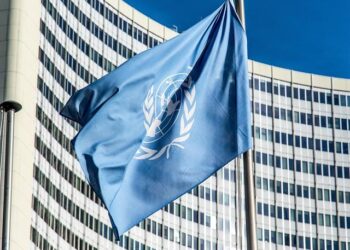Turkey has reportedly increased its military presence in the northern part of Cyprus, a move that has raised concerns among Greek Cypriot authorities and the international community. According to multiple sources, Ankara has deployed additional troops and equipment to the region it occupies since 1974, further solidifying its control. The expansion comes amid ongoing tensions over the island’s divided status and stalled reunification talks. This latest development underscores the fragile security situation in Cyprus and complicates efforts toward a peaceful resolution.
Turkey Increases Military Assets in Northern Cyprus Raising Regional Security Concerns
Turkey’s augmentation of military assets in Northern Cyprus has sparked a wave of concern across the Eastern Mediterranean, heightening tensions among neighboring states. Recent deployments reportedly include advanced missile systems, additional infantry units, and enhanced naval capabilities aimed at consolidating Ankara’s strategic foothold in the region. This build-up is viewed by many analysts as a direct response to shifting geopolitical dynamics, underscoring Istanbul’s intent to assert dominance over contested waters and airspace.
Local governments and international observers have expressed unease over the potential ramifications of this escalation. Among the key issues raised are:
- Disruption of fragile peace negotiations between Greek Cypriot and Turkish Cypriot communities.
- Increased risk of inadvertent military incidents in a highly militarized zone.
- Challenges to European Union security interests and NATO cohesion in the broader region.
| Military Asset | Description | Impact |
|---|---|---|
| Surface-to-Air Missiles | Deployments around key bases | Enhanced air defense capability |
| Naval Patrol Boats | Increased presence in adjacent waters | Boosted maritime surveillance |
| Additional Infantry | Reinforcement of existing garrisons | Improved ground control |
Strategic Implications of Ankara’s Expanded Presence for Eastern Mediterranean Stability
Turkey’s bolstered military footprint in northern Cyprus signals a strategic recalibration that could shift the power dynamics of the Eastern Mediterranean. This expansion reinforces Ankara’s foothold, effectively consolidating its influence in a region already fraught with complex geopolitical rivalries. Such a move challenges the balance between Greek Cypriot authorities and Turkey-backed Northern Cyprus, escalating tensions that ripple through alliances involving Greece, Israel, and Egypt. It also complicates ongoing diplomatic efforts aimed at resolving territorial disputes and energy exploration rights within contested waters.
The enhanced presence comes with multifaceted implications for regional stability:
- Security Dilemma: Neighboring states may perceive this as a provocative gesture, prompting increased military preparedness or countermeasures.
- Energy Access: Control over strategic locations enables Ankara to better influence natural gas exploration, impacting economic interests across multiple countries.
- Diplomatic Setbacks: The move risks undermining fragile negotiations, reducing prospects for a peaceful settlement of the Cyprus question.
| Factor | Potential Impact |
|---|---|
| Military Reinforcement | Increased tensions, arms race risk |
| Energy Corridor Control | Regional economic leverage |
| Political Messaging | Asserted sovereignty claims, strained diplomacy |
Calls for International Dialogue and Strengthened Diplomatic Efforts to Deescalate Tensions
In light of recent developments, numerous countries and international bodies have issued urgent appeals urging all parties to engage in constructive dialogue aimed at reducing tensions in Cyprus. The escalation of military activities has amplified fears of destabilization within the region, prompting calls for an immediate halt to any further deployments or provocative maneuvers. Advocates emphasize the necessity of a calm, diplomatic approach to preserve peace and security on the island and to safeguard the broader Eastern Mediterranean geopolitical balance.
To facilitate progress, the international community has recommended several key steps:
- Renewed peace talks under the auspices of the United Nations.
- Increased monitoring efforts by neutral observers to verify troop movements.
- Confidence-building measures between conflicting parties to reduce misunderstandings.
- Multilateral engagement involving regional stakeholders, including Greece and Turkey.
Failure to adhere to these proposals risks deepening divisions and undermining years of painstaking diplomatic efforts, analysts warn.
Wrapping Up
The reported expansion of Turkey’s military presence in occupied Cyprus marks a significant development in the long-standing and complex dispute over the island. As tensions continue to simmer, the move is likely to draw international attention and further complicate diplomatic efforts aimed at resolving the conflict. Stakeholders across the region and beyond will be closely monitoring the situation, underscoring the delicate balance of power and the persistent challenges to peace and stability in Cyprus.
















